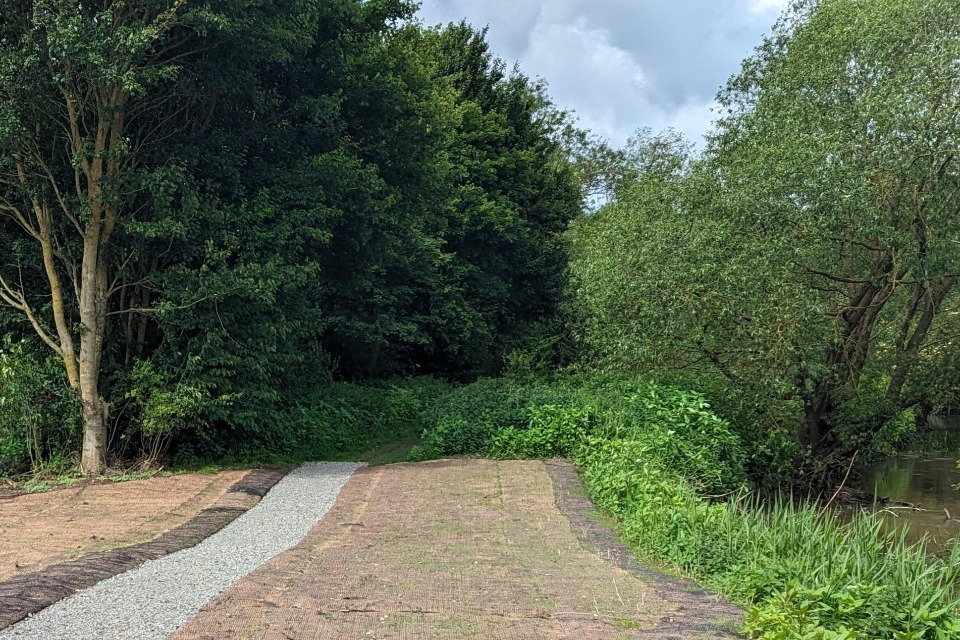- Funding will help support hospices and deliver much needed funding for improvements including refurbishments, overhauling IT systems and improving facilities for patients and visitors
The biggest investment in a generation for hospices has been announced by the government today, ensuring that hospices can continue to deliver the highest quality end of life care possible for their patients, families, and loved ones.
The £100 million funding will help hospices this year and next to provide the best end of life care to patients and their families in a supportive and dignified physical environment.
Hospices for children and young people will also receive a further £26 million revenue funding for 2025/26 through what until recently was known as the Children’s Hospice Grant.
The government is committed to ensuring every person has access to high-quality end of life care and, as part of its Plan for Change is taking immediate action to rebuild the health service and deliver improved standards of care, making sure it is fit for the future.
Health and Social Care Secretary Wes Streeting said
Hospices provide the care and support for patients and families at the most difficult time so it is only right they are given the financial support to provide these services.
This package will ensure they will be able to continue to deliver the compassionate care everyone deserves as they come to the end of their life in the best possible environment.
This investment will go towards helping hospices to improve their buildings, equipment, and accommodation to ensure that patients continue to receive the best care possible.
That will include refurbishing bedrooms and bathrooms for patients and providing comfortable overnight facilities for families, improving IT systems making it easier for GPs and hospitals to share vital data on patients.
The money will also help towards improving garden and outdoor spaces so patients and their families can spend time outdoors in greener and cleaner spaces.
It will also help to develop and bettering outreach services to support people in their own homes when needed.
Minister of State for Care Stephen Kinnock said
I am grateful to NHS staff and voluntary organisations, including hospices, for the deeply compassionate care and support they give to end of life patients and their families.
The £100 million capital investment that the government is announcing today will allow hospices to improve their physical and operational environment, enabling them to provide the best possible care to their patients.
Dr Amanda Doyle, NHS national director of primary care, said
Hospices provide such an important service to patients and families at a very difficult time of life so this funding boost is incredibly welcome.
It’s absolutely right that staff can provide high quality and compassionate care to people at the end of their life in the best possible environment and this package will help staff to do that.
As part of the 10 Year Health Plan, the government wants to shift healthcare out of hospitals into the community, to ensure patients and their families receive personalised care in the most appropriate setting. The palliative and end of life care sector, including hospices, will have a big role to play in that shift.
The capital funding will also support the government’s shift from analogue to digital, through the digital upgrades.
There are around 170 hospices that provide end of life care for adults, and around 40 provide hospice care for children and young people in England, with some hospices providing care to both.
Toby Porter, CEO of Hospice UK, said
Today’s announcement will be hugely welcomed by hospices, and those who rely on their services. Hospices not only provide vital care for patients and families, but also relieve pressure on the NHS.
This funding will allow hospices to continue to reach hundreds of thousands of people every year with high-quality, compassionate care. We look forward to working with the government to make sure everyone approaching the end of life gets the care and support they need, when and where they need it.
Ralph Coulbeck, Chief Executive at Haven House children’s hospice, said
It will be a relief to everybody in the children’s hospice sector to hear that the Children’s Hospice Grant is being maintained next year; this will help to support the vital care we provide to seriously ill children and families.
It is also very positive to hear about the government’s plans to invest significantly in the wider hospice sector; we hope that there will be as much flexibility as possible to determine locally how this new money is spent.
This investment shows how government recognises the importance of integrating services to improve the treatment patients receive. Through our plans for Neighbourhood Health Centres, we will drive the shift of care from hospital into the community, bringing together existing palliative care services alongside community care services, so people have the best access to treatment through joined-up services.
Background
- Funding arrangements will be shared with the sector in the new year.
- The £26 million revenue funding for children’s hospices is for 2025/26.
- Palliative care services are included in the list of services an integrated care board (ICB) must commission. This promotes a more consistent national approach and supporting commissioners in prioritising palliative and end of life care. To support ICBs in this duty, NHS England has published statutory guidance and service specifications.
- Most hospices are charitable, independent organisations which receive some statutory funding for providing NHS services. The amount of funding each charitable hospice receives varies both within and between ICB areas. This will vary depending on demand in that ICB area, but will also be dependent on the totality and type of palliative and end of life care provision from both NHS and non-NHS services, including charitable hospices, within each ICB area.
- We, alongside key partners, NHS England will continue to proactively engage with our stakeholders, including the voluntary sector and independent hospices, on an ongoing basis, in order to understand the issues they face.








